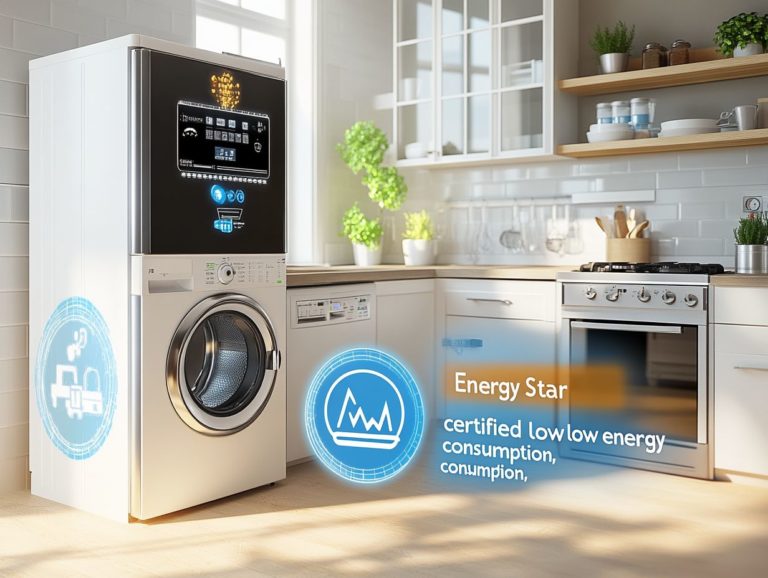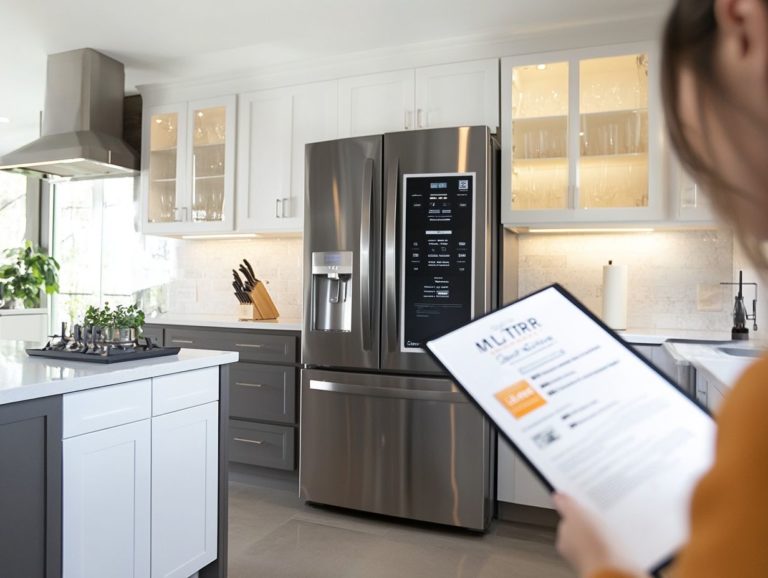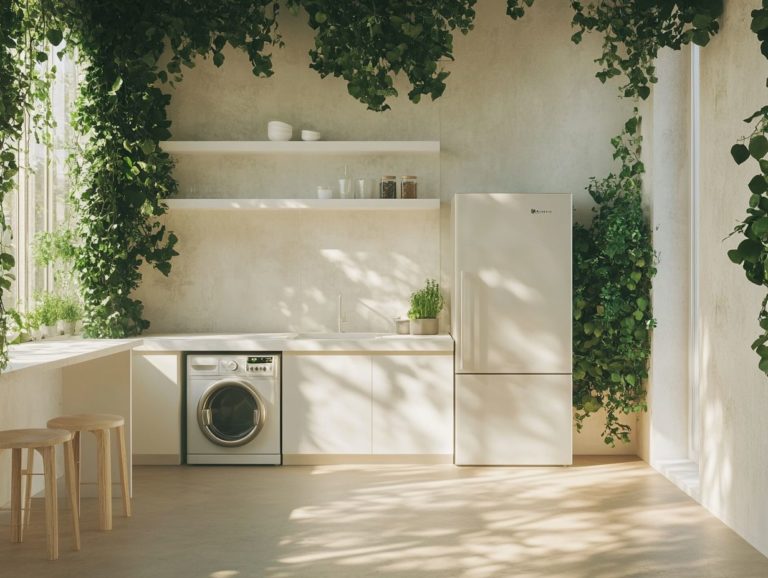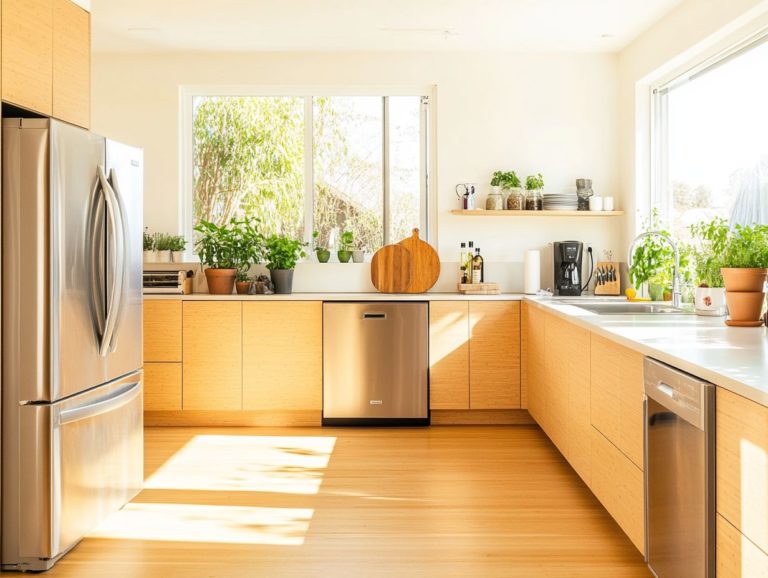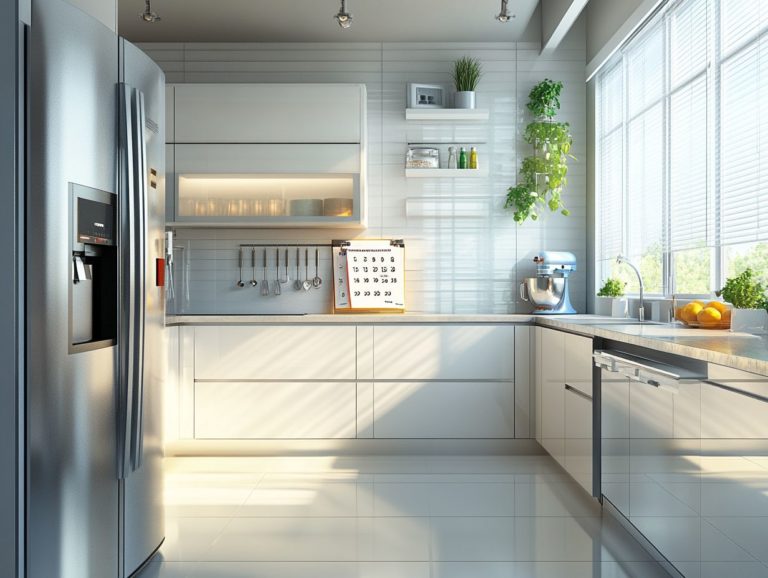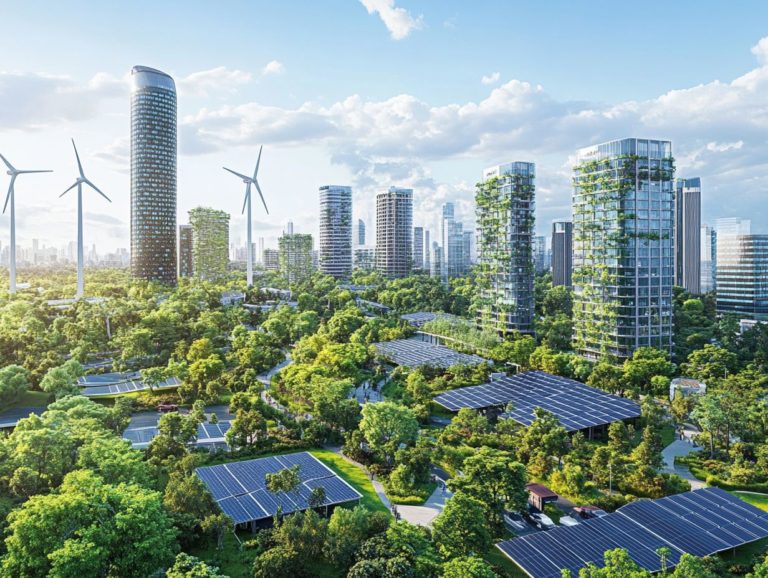How to Save Energy with Smart Home Appliances
Smart home appliances are revolutionizing the way you manage your daily life, delivering convenience, efficiency, and great control.
With the relentless march of technology, these devices streamline tasks, helping you save both energy and money. This article delves into the diverse range of smart home appliances available, highlighting their numerous benefits and essential factors to consider when selecting the perfect fit for your space.
You ll also find valuable tips for maximizing energy efficiency, alongside insights into the future of smart technology. Get ready to embrace a smarter home and unlock amazing benefits!
Contents
- Key Takeaways:
- Benefits of Using Smart Home Appliances
- Types of Smart Home Appliances
- Factors to Consider When Choosing Smart Home Appliances
- Tips for Maximizing Energy Savings with Smart Home Appliances
- Future of Smart Home Appliances
- Frequently Asked Questions
- Can using smart home appliances really help me save energy?
- What types of smart home appliances are available for energy saving?
- How do smart thermostats help save energy?
- Do smart power strips really make a difference in energy consumption?
- How do LED light bulbs save energy?
- Can energy monitoring systems help me track my energy usage?
Key Takeaways:
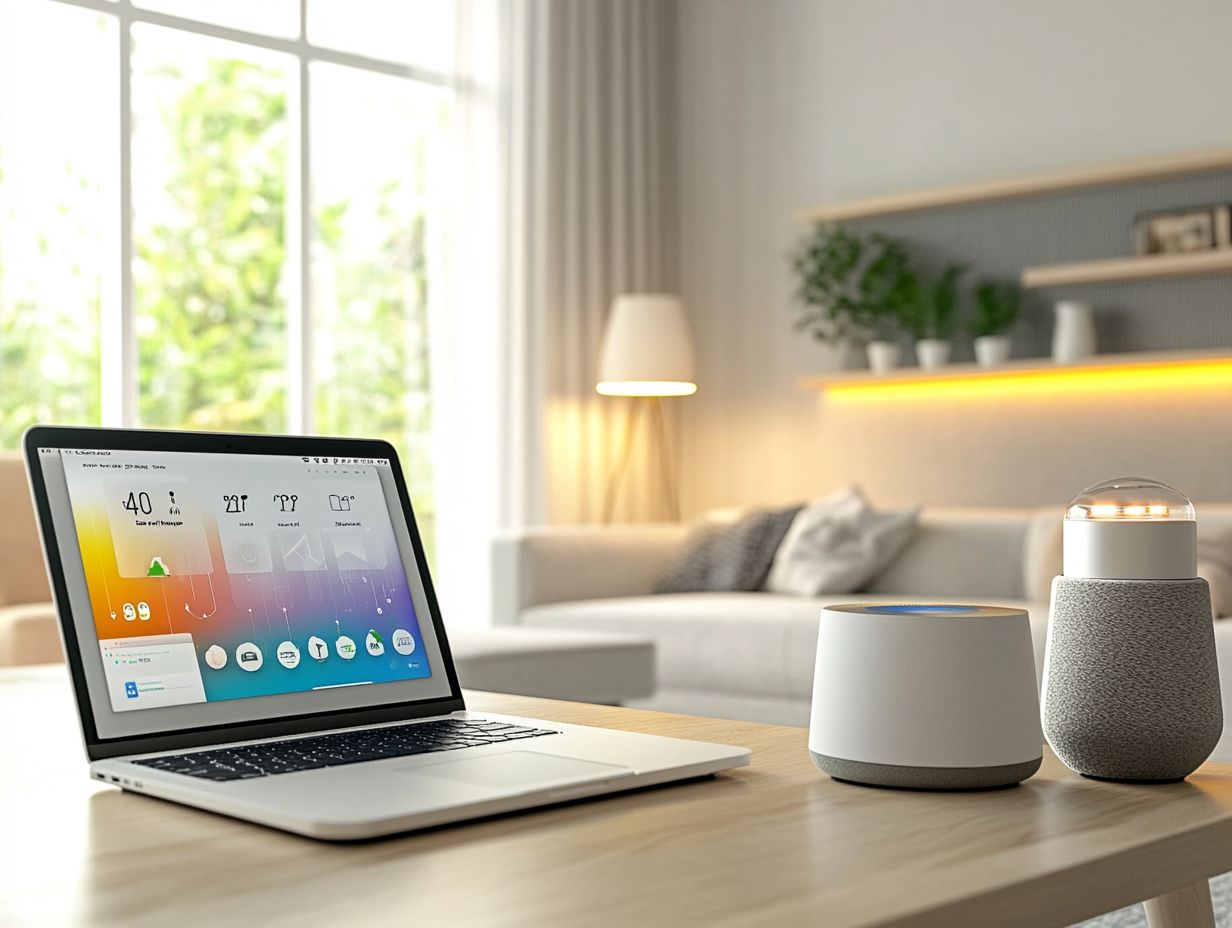
What are Smart Home Appliances?
Smart home appliances are changing how you handle everyday chores and utilities by seamlessly integrating advanced technologies into your everyday items.
From smart thermostats like Ecobee and NEST to innovative lighting solutions such as Philips Hue, these devices elevate convenience, control, and energy efficiency in your home.
With the advent of smart home technology, you can automate mundane tasks and reduce energy consumption by following practical tips for energy-efficient appliance use, leading to a more sustainable living environment.
These smart appliances connect effortlessly with home automation systems, granting you the ability to monitor and control them directly from your smartphone or tablet.
Leading brands like Samsung and LG Electronics have crafted an extensive array of products that easily work together with platforms like Amazon Echo and Google Home, allowing for voice-controlled management of various tasks.
This integration not only streamlines your daily operations like adjusting temperature settings or managing appliances but also plays a pivotal role in energy management by optimizing your consumption patterns.
As you become more aware of your usage habits, you’ll be thrilled by the savings you can enjoy while making a meaningful contribution to ecological sustainability.
Benefits of Using Smart Home Appliances
The adoption of smart home appliances brings a wealth of advantages, including using smart tech to monitor home energy use, that can profoundly enhance your quality of life and optimize energy efficiency.
Imagine smart plugs that effortlessly eliminate energy vampires or smart lighting systems that you can control from anywhere these devices offer unparalleled convenience and efficiency.
Innovations like smart thermostats let you manage energy use precisely, which can save you money over time.
Energy Efficiency and Cost Savings
One of the most persuasive reasons to invest in smart home appliances is their remarkable ability to enhance energy efficiency. To learn more about this, check out how to upgrade to energy-efficient appliances, ultimately yielding significant cost savings over time.
Appliances boasting ENERGY STAR ratings, such as smart thermostats and smart ceiling fans, intelligently optimize energy consumption by adjusting usage based on real-time data, highlighting the benefits of smart home energy management.
This leads to lower electricity bills while also reducing your environmental impact.
By leveraging cutting-edge technology, devices like the NEST and Ecobee give you the power to monitor your energy usage patterns and adjust heating and cooling settings remotely through intuitive apps.
This not only guarantees your comfort but also equips you to make informed decisions about your energy consumption habits.
Actively managing your energy use is crucial; consistent monitoring can unveil trends that lead to smarter adjustments, benefiting your household budget.
As you become increasingly attuned to your consumption, you naturally begin to reduce waste, enhancing both your financial health and your positive ecological footprint.
Convenience and Control
Smart home appliances offer unmatched convenience and control, allowing you to manage your devices remotely through your smartphone or voice-activated systems.
With smart devices like smart plugs and smart blinds at your fingertips, you can effortlessly adjust your environment, whether at home or on the move, ensuring your comfort and security.
These innovations work seamlessly with popular voice assistants like Apple HomePod, Amazon Echo, and Google Home, making interactions intuitive. Set automation routines, enabling your lighting, thermostat, and security cameras to respond to specific triggers, like the time of day or whether anyone is home.
Scheduling becomes straightforward, allowing devices to turn on or off at designated times. You ll receive real-time alerts on your smartphone, keeping you informed and in control of your home’s safety.
Types of Smart Home Appliances
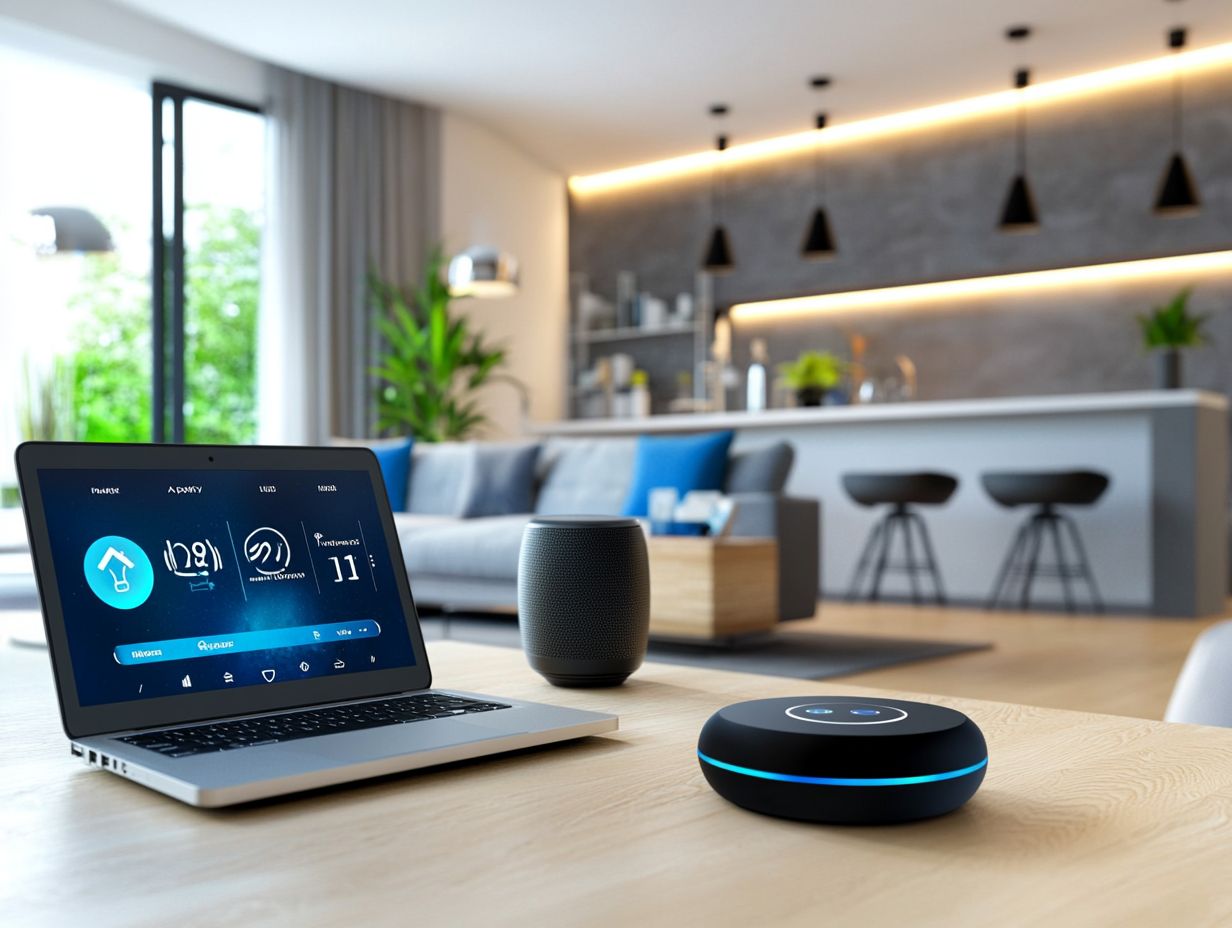
Smart home appliances come in many types, each carefully designed to improve how your home works.
From smart lighting systems like Philips Hue to advanced leak detectors and heating, ventilation, and air conditioning (HVAC) controls, these devices meet a range of needs while emphasizing energy management and user convenience.
With such a wide range, you re sure to find the perfect fit for your lifestyle!
Examples and Features
Numerous examples of smart home appliances illustrate their diverse features and capabilities, making them essential for modern living.
Smart lighting solutions like Philips Hue let you customize colors and schedules to suit your mood. Meanwhile, smart thermostats like Ecobee and NEST provide precise control over your home s temperature and energy usage.
Smart refrigerators from Samsung and LG offer invaluable features like food inventory tracking and energy-efficient settings that help you reduce waste and cut down on utility bills.
Robot vacuums like the iRobot Roomba enhance cleaning efficiency, navigating your home effortlessly while providing scheduling options that fit into your busy lifestyle.
Brands like August elevate the home automation experience with smart locks, giving you the power to monitor access and control entry via your smartphone, enhancing security and convenience.
Collectively, these gadgets show how home automation not only simplifies daily routines but also plays a vital role in effective energy management.
Factors to Consider When Choosing Smart Home Appliances
When choosing smart home appliances, consider several essential factors to make a worthwhile investment that boosts both energy efficiency and convenience. For detailed guidance, check out how to upgrade to a smart energy-efficient home.
Think about compatibility with your existing smart devices to ensure everything works harmoniously. Also, consider the cost and how much you might save over time.
These elements greatly influence the overall performance of your home automation system, enhancing your living experience.
Compatibility and Integration
When selecting smart home appliances, compatibility and integration are key factors. These elements determine how well your devices collaborate within your home automation system.
Ensure that your smart appliances can connect effortlessly with voice assistants like Amazon Echo and Google Home, enhancing usability and maximizing functionality.
To assess compatibility, you need to understand the communication protocols these devices use, such as Zigbee, Z-Wave, or Wi-Fi. Each protocol has unique strengths; for example, Zigbee and Z-Wave excel in low power consumption and mesh networking, while Wi-Fi delivers higher bandwidth for data-heavy tasks.
An integrated system enhances energy management by synchronizing device operations, minimizing waste, and promoting efficient usage. Your convenience skyrockets as you control multiple appliances through a single app, streamlining daily routines and elevating your overall living experience.
Cost and Return on Investment
Evaluating the cost and return on investment of smart home appliances is crucial for you to make informed purchasing decisions. This ensures a balance between upfront expenses and long-term savings.
While some smart devices may have a higher initial price tag, their potential for energy savings, improved efficiency, and enhanced convenience often makes the investment worthwhile over time.
To fully assess the overall costs, consider factors like installation fees. These fees can vary based on the complexity of the device, as well as ongoing maintenance costs that may arise throughout its lifespan.
Energy-efficient appliances, such as smart thermostats and LED lighting systems, can significantly reduce your utility bills.
For example, a smart thermostat can learn your habits and automatically adjust heating and cooling settings. This can lead to yearly energy savings that might pay off the initial investment in just a few seasons.
These devices also optimize your comfort and contribute to sustainability efforts, making them an appealing choice for eco-conscious consumers like yourself.
Tips for Maximizing Energy Savings with Smart Home Appliances
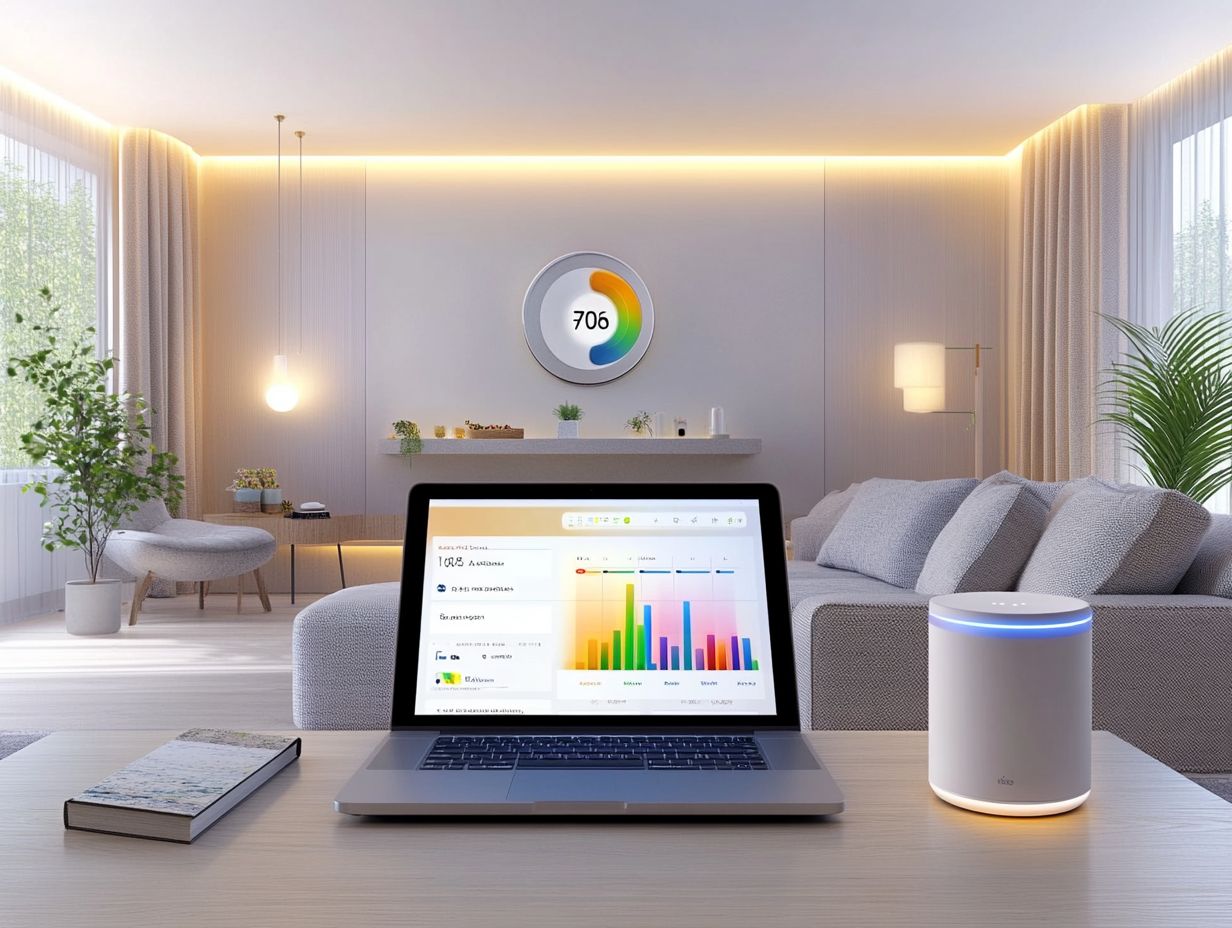
Maximizing energy savings with smart home appliances is all about adopting best practices and utilizing smart home technology for energy savings. These systems are crafted to reduce consumption efficiently.
By pinpointing and tackling common energy vampires devices that quietly drain power even when they re not in use you can make a substantial dent in your energy bills while lessening your environmental footprint.
Best Practices for Usage and Maintenance
To ensure your smart home appliances perform at their best and last as long as possible, it s essential to follow best practices for usage and maintenance.
Regular software updates, monitoring energy consumption, and properly configuring your devices are key steps to maintaining energy efficiency and enhancing their overall effectiveness.
These appliances typically come with dedicated mobile apps that provide valuable insights into their performance and offer troubleshooting options when issues arise. Make it a routine to check for firmware updates to take advantage of enhanced features and security improvements that manufacturers periodically roll out.
Keeping an eye on power usage can help you spot any anomalies indicating a problem, allowing for early intervention. Regular cleaning and ensuring your devices are placed correctly can further contribute to their efficiency, minimizing strain on components and significantly extending their operational lifespan.
Future of Smart Home Appliances
Get excited! The future of smart home appliances is incredibly bright, propelled by swift technological advancements that elevate their capabilities and usability.
Innovations in smart home technology are poised to revolutionize energy management, transforming your home into a more efficient and user-friendly space. This progress enhances convenience and addresses pressing concerns surrounding sustainability and environmental impact.
Technological Advancements and Potential Impact
Technological advancements in smart home appliances are transforming the landscape of energy management solutions. For those looking to enhance efficiency, considering tips for choosing energy-efficient appliances can fundamentally alter the way you engage with your living spaces.
With the integration of machine learning algorithms, these devices can learn your preferences and optimize their performance to suit your needs. The Internet of Things (IoT) enables seamless connectivity among appliances, allowing them to communicate and collaborate for enhanced energy efficiency.
As a result, your daily life becomes remarkably more convenient. Picture waking up to a home that has perfectly adjusted its temperature and lighting based on your sleep patterns. These advancements hold the potential to significantly reduce carbon footprints, positively impacting the environment and promoting a greener lifestyle.
Frequently Asked Questions
Have more questions? Feel free to reach out or explore our other resources!
Can using smart home appliances really help me save energy?
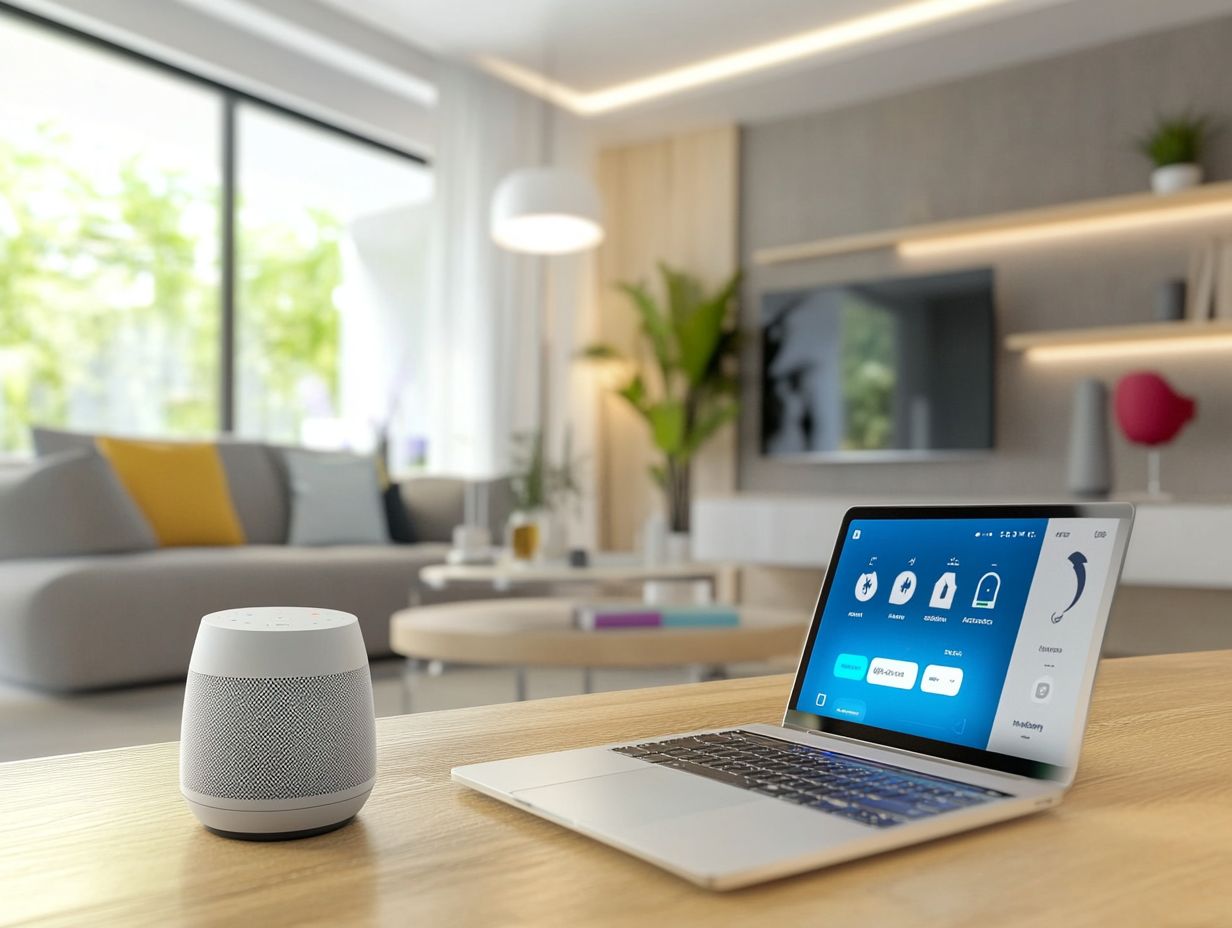
Yes! Smart home appliances are designed to be energy efficient. For instance, using the top energy-efficient home appliances you need can significantly reduce your energy usage, allowing you to see amazing savings on your energy bills right away.
What types of smart home appliances are available for energy saving?
Many smart home appliances can help you save energy. These include smart thermostats, LED light bulbs, smart power strips, and smart home devices for energy efficiency and energy monitoring systems.
How do smart thermostats help save energy?
Smart thermostats learn your heating and cooling habits. This way, they adjust when you re not home, ensuring you don t waste energy.
You can control them remotely, turning off the heating, ventilation, and air conditioning (HVAC) system when you re away.
Do smart power strips really make a difference in energy consumption?
Absolutely! Smart power strips can cut your energy use by turning off power to devices that aren t in use. This helps eliminate standby power, which can account for up to 10% of your energy bill.
How do LED light bulbs save energy?
LED light bulbs use much less energy than traditional incandescent bulbs and last longer. You ll save energy and money on replacement bulbs over time.
Can energy monitoring systems help me track my energy usage?
Yes! Energy monitoring systems provide real-time data on your usage. They help you find ways to cut back and save even more energy.
Some systems can even optimize your smart appliances for maximum efficiency.

